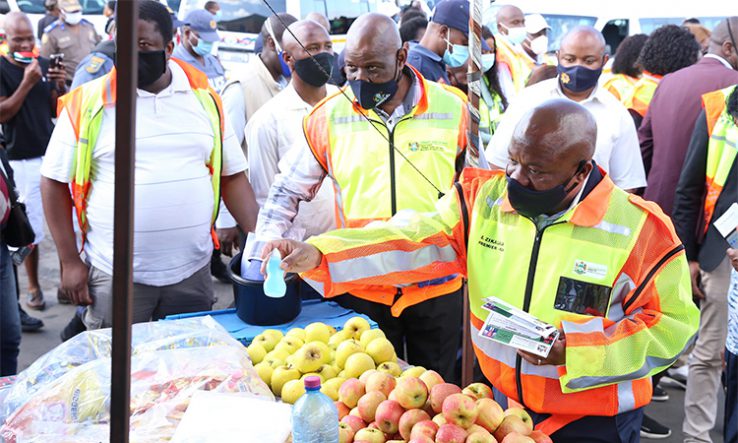
Image: GovernmentZA [CC BY-ND 2.0], via Flickr
Policing and preparedness criticised in pandemic response
South Africa’s government needs to learn a lot of lessons from the way it has handled the coronavirus pandemic, academics and other experts have said.
The message came in the preliminary findings of a project commissioned last year to record the measures and interventions put in place to manage the spread and socio-economic impact of Covid-19.
They say that lockdown measures left many South Africans without enough food to eat, disaster management centres were not well resourced, and law enforcement was too heavy-handed at times.
The findings were presented to the National Planning Commission on 5 February and posted on the National Research Foundation website on 12 February. NRF implements the Covid-19 Country Report project alongside the Government Technical Advisory Centre and the Department of Planning Monitoring and Evaluation.
Hunger caused by Covid-19 restrictions in many communities has emphasised the need for a national response to food insecurity, the report’s authors say. Mechanisms should be explored for producing nutritious staple foods that can be sold without mark-up.
Legal enforcement has been too forceful during the pandemic, they add, and the security sector needs to adopt a more humanitarian approach in crisis management.
Disaster management centres need to be better resourced at national, provincial and local levels, they argue.
In healthcare, Covid-19 has created “new interfaces” between public and private services, the authors say, which should feed into future reforms of healthcare.
The increased demand for internet connectivity resulting from education moving online and people working from home adds urgency to the need to bridge the digital divide between haves and have-nots in South Africa, they add.
The report’s authors include academic researchers, including Himla Soodyall, secretary-general of the Academy of Science of South Africa, law professor Elmien Du Plessis from North-West University, and economics professor Babette Rabie from Stellenbosch University.